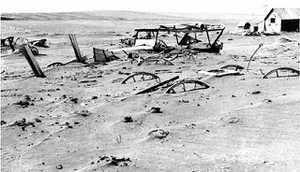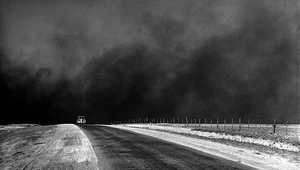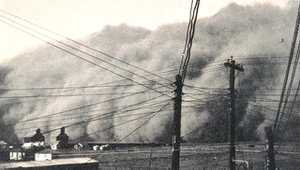Lawrence Svobida, a wheat farmer from Kansas, witnessed first-hand the searing drought and relentless winds that crippled the southern Great Plains during the 1930’s. His vivid account is taken from his memoir, “Farming the Dust Bowl.”
-
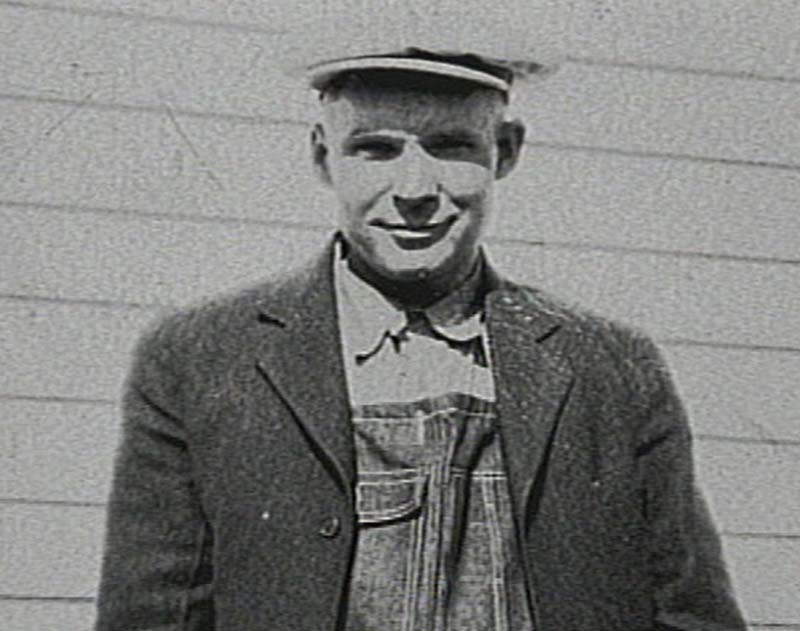
“I believe any man must see beauty in mile upon mile of level land where the wheat, waist high, sways to the slightest breeze and is turning a golden yellow under a flaming July sun. To me it is breathtaking, the most beautiful scene in all the world.” — Lawrence Svobida
Credit: Laureen Svobida -
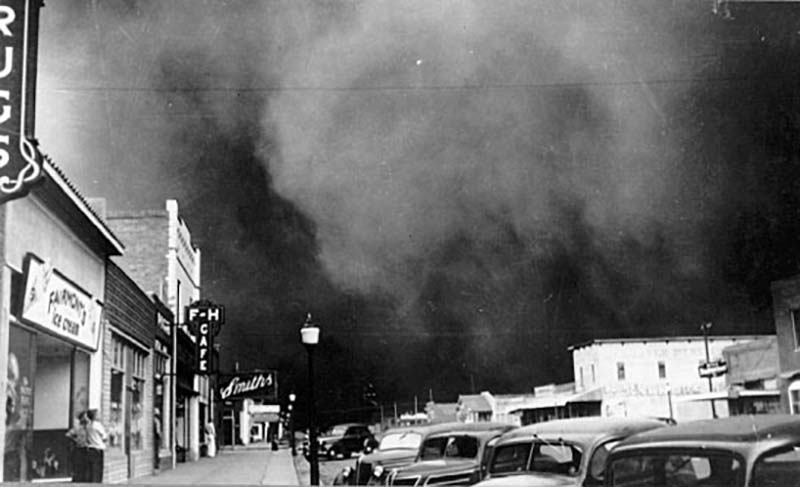
“...With the gales came the dust. Sometimes it was so thick that it completely hid the sun. Visibility ranged from nothing to fifty feet, the former when the eyes were filled with dirt which could not be avoided, even with goggles.”
Credit: NARA -
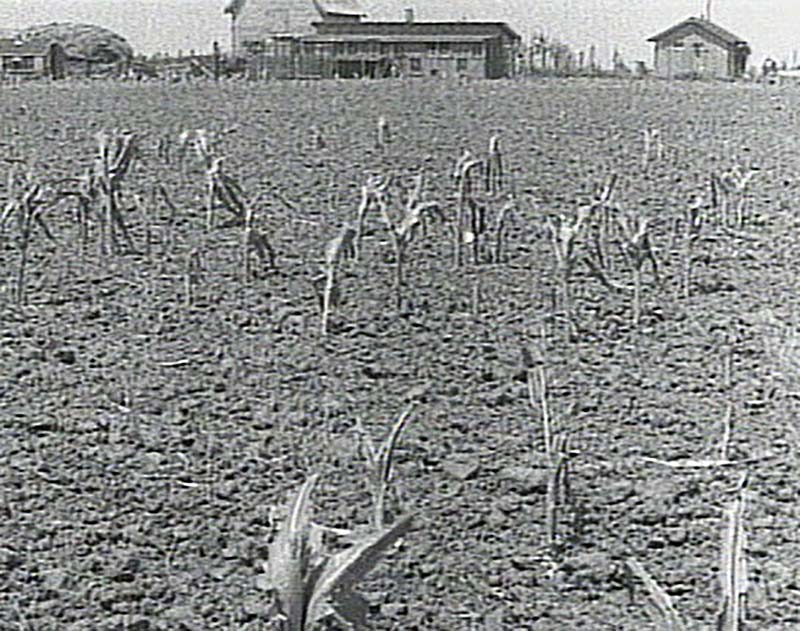
“...When I knew that my crop was irrevocably gone I experienced a deathly feeling which, I hope, can affect a man only once in a lifetime. My dreams and ambitions had been flouted by nature, and my shattered ideals seemed gone forever. The very desire to make a success of my life was gone. The spirit and urge to strive were dead within me. Fate had dealt me a cruel blow above which I felt utterly unable to rise.”
Credit: Grinberg Film Libraries -
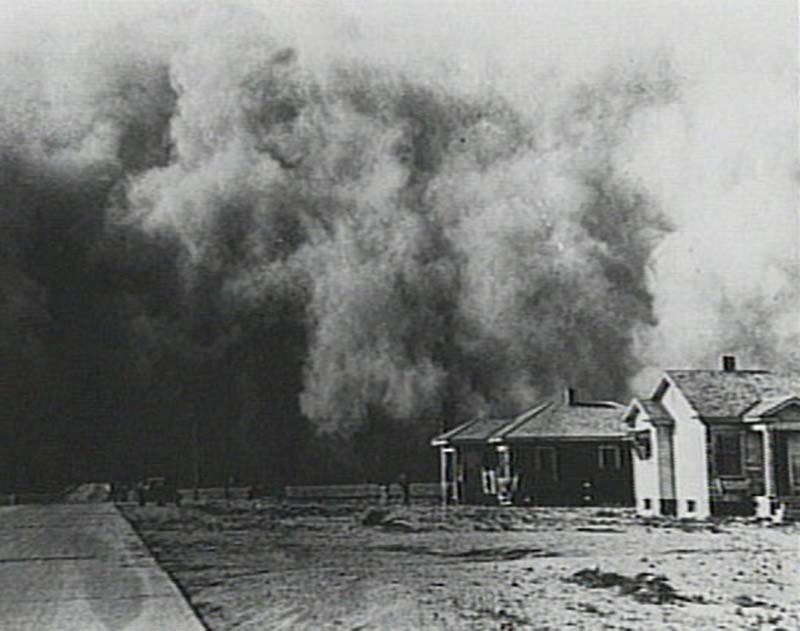
“...At other times a cloud is seen to be approaching from a distance of many miles. Already it has the banked appearance of a cumulus cloud, but it is black instead of white, and it hangs low, seeming to hug the earth. Instead of being slow to change its form, it appears to be rolling on itself from the crest downward. As it sweeps onward, the landscape is progressively blotted out. Birds fly in terror before the storm, and only those that are strong of wing may escape. The smaller birds fly until they are exhausted, then fall to the ground, to share the fate of the thousands of jack rabbits which perish from suffocation.”
Credit: Library of Congress -
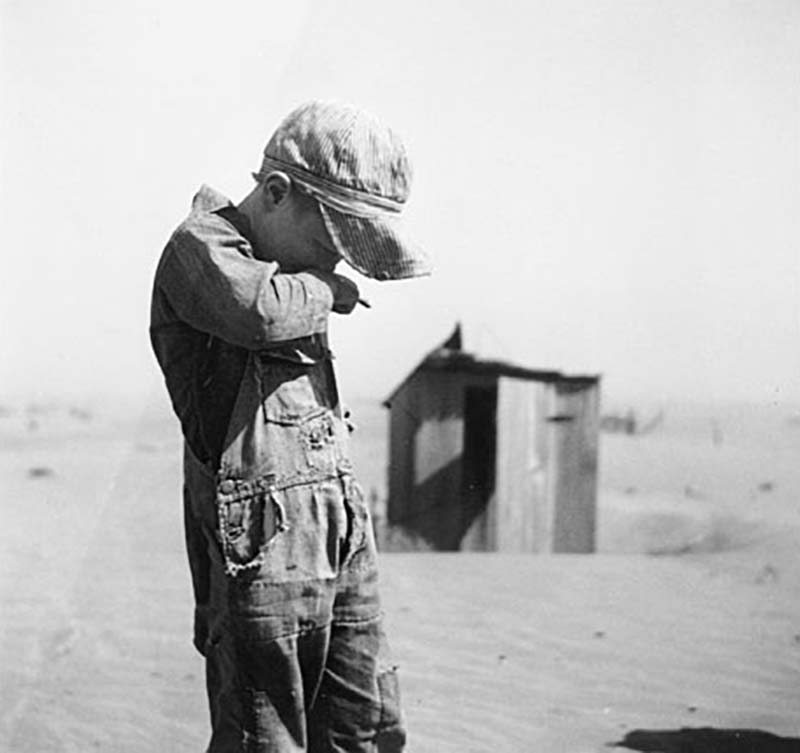
“...The doctors of our region know that dust endangers the life of anyone whose health is impaired from disease, and that it is often the direct cause of the deaths of people previously strong and healthy. There are many victims who, because of poverty or prejudice, never go to a hospital, and many patients who are taken there at last by relatives are moribund when admitted, and die within a few hours. ...The dust I had labored in all day began to show its effects on my system. My head ached, my stomach was upset, and my lungs were oppressed and felt as if they must contain a ton a fine dirt.”
Credit: Library of Congress -
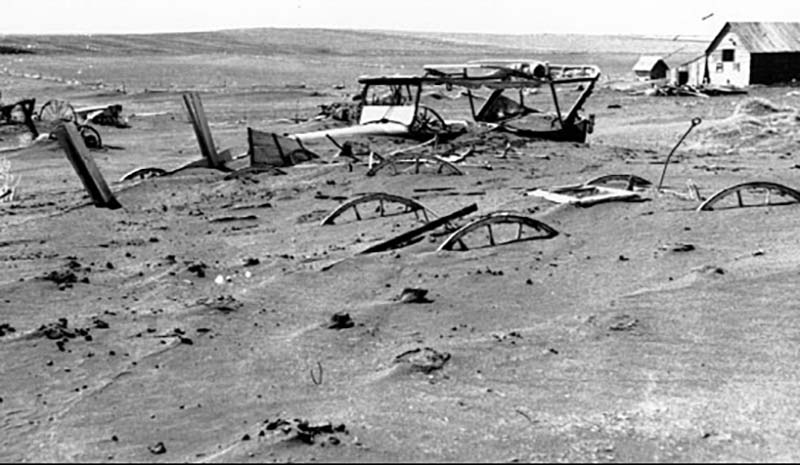
“...So the Dust Bowl had taught us another lesson, namely that bare ground exposed to the sun will transform warm breezes into fiery blasts. The hot wind seemed to rob all vegetation of its vitality. This was my first experience of a wind that caused my face to blister so that the skin peeled off.”
Credit: Library of Congress -
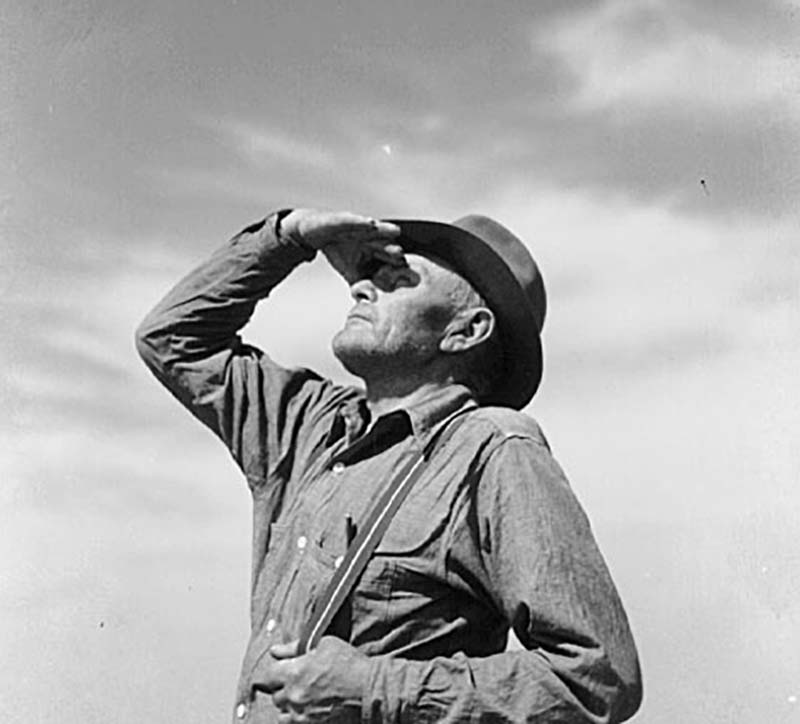
“...Everyday I scanned the sky, looking for signs of the rain that would save my wheat from ruin. One after another, neighbors saw their crops reach a condition beyond hope of salvage.”
Credit: Library of Congress -
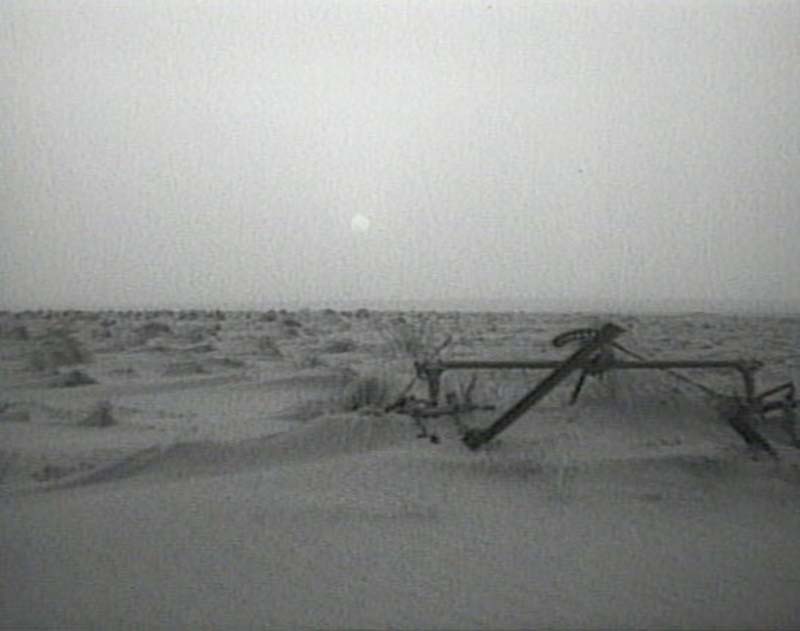
“...Then, at last, the rain came, with a precipitation of five inches during the ensuing two days and nights, which effectively put an end to the blowing of the land for that season. With the coming of rain the whole aspect of the country changed, and I felt again the buoyancy of young manhood.”
Credit: Library of Congress -
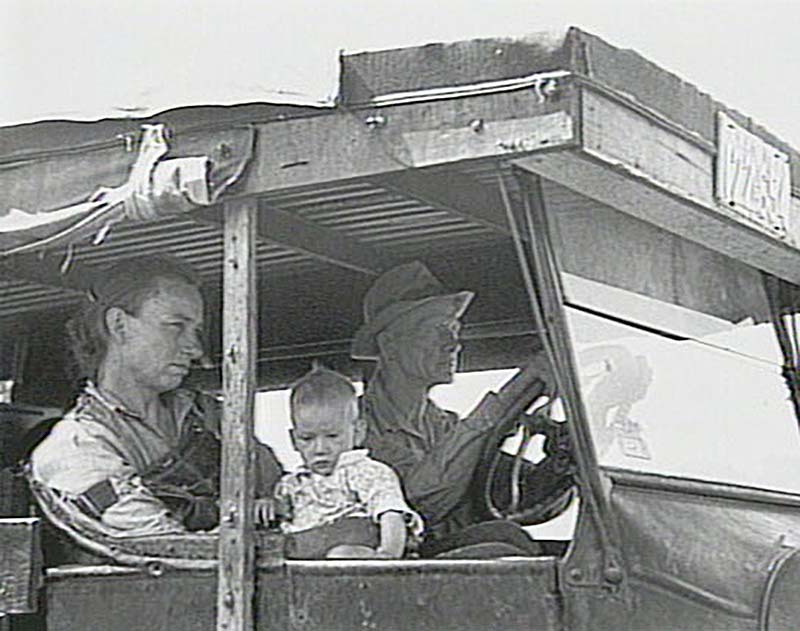
“...With my financial resources at last exhausted and my health seriously, if not permanently impaired, I am at last ready to admit defeat and leave the Dust Bowl forever. With youth and ambition ground into the very dust itself, I can only drift with the tide.”
Credit: Library of Congress




